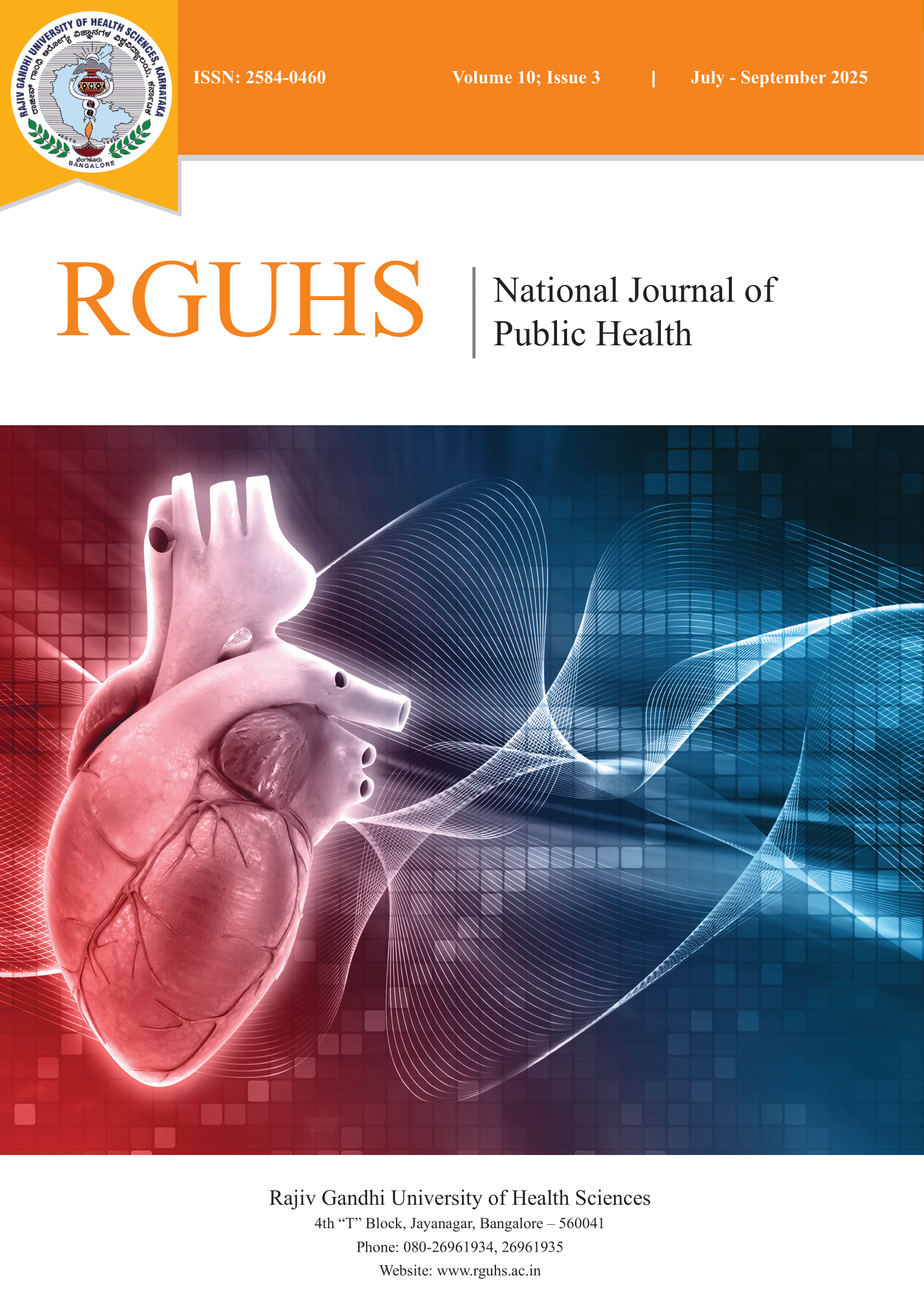
RGUHS Nat. J. Pub. Heal. Sci Vol No: 10 Issue No: 3 eISSN: 2584-0460
Dear Authors,
We invite you to watch this comprehensive video guide on the process of submitting your article online. This video will provide you with step-by-step instructions to ensure a smooth and successful submission.
Thank you for your attention and cooperation.
Dr Kishore S G
Assistant Professor
Department of Community Medicine
Bangalore Medical College and Research Institute
Bangalore
Email: dr.kishoregowda@gmail.com

Abstract
None
Keywords
Downloads
-
1FullTextPDF
Article
Iodine is a chemical element or trace mineral found in constant amounts in seawater but has uneven distribution over land. It is an essential mineraland a key component in the production of thyroid hormones therefore important for brain development. Iodine deficiency is the largest cause of preventable brain damage globally and leads to a wide spectrum of disorders from intrauterine life extending through childhood and adult life with serious health and social implications.Lack of Iodine in the diet leads to visible and invisible spectrum of health consequences collectively called iodine deficiency disorders (IDDs).Globally, India has the largest number of children born at risk to iodine-deficiency.Of the 325 districts surveyed in India, 263 districts are IDD-endemic, i.e. the prevalence of IDD is above 10 per cent in the populationwith 200 million people at risk in 2016.Two major factors responsible for IDD are inadequate iodine intake and utilization. The inadequate iodine intake may be secondary to low iodine content of the soil or inadequate iodine consumption of sea food due to high cost and low availability. Consumption of iodized salt daily is the simplest, the most effective and inexpensive mode recognised to prevent the broad spectrum of IDD.
The Government of India started National Iodine Deficiency Disorders Control Program (NIDDCP) in 1992 to promote nationwide use of iodized salt. Under this program, Iodized salt containing 15 ppm of iodine is made available to the beneficiaries. Most of the iodine absorbed in the body eventually appears in urine, so urinary iodine concentration is a good marker for estimating very recent dietary iodine intake. Intensified Information, health education and communication activities to school children, teachers and general public regarding consumption of iodized salt and broad spectral health problems of iodine deficiency. Regular screening among the school children in the prevalent zones and strengthening the system of monitoring the quality of iodized salt provided to the beneficiaries for continued progress towards elimination of IDD are required.In summary, enormous progress has been made globally over the past one decade in understanding and eliminating iodine deficiency as the major cause of preventable brain damage in the foetus, new-born and infant and as a cause of thyroid disorders in adults.
More than three quarters of the India’s population now has access to iodine on a daily basis through edible iodized salt, but sustainability remains a challenge. Many recent excellent clinical research studies have revealed that IDD are not confined to remote, mountainous areas in developing countries as we once thought, but are a global public health problem that affects most countries, including developed countries and island nations. The recognition of the universality of iodine deficiency highlights the need for more research into the pathogenesis and consequences of mild to moderate iodine deficiency and the development of new strategies to establish and maintain sustainable IDD elimination.
Supporting File
References
None